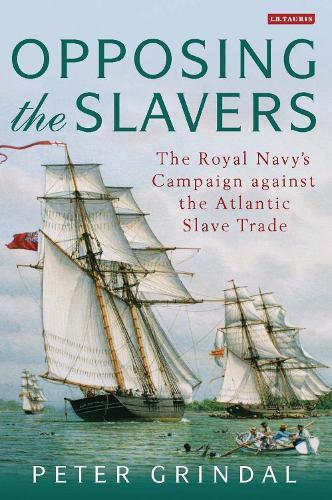Overview
Much is known about Britain's role in the Atlantic slave trade during the eighteenth century but few are aware of the sustained campaign against slaving conducted by the Royal Navy after the passing of the Slave Trade Abolition Act of 1807. Peter Grindal provides the definitive account of this little known yet important part of the British, European and American history. Drawing on original sources to provide a comprehensive and engaging narrative of the naval operations against slavers of all nations - in particular Portugal, Spain, the Netherlands and Brazil, he describes how illegal traders sought to evade treaty obligations, reveals the obduracy of the USA that prolonged the slave trade, and shows how, despite inadequate resources, the Royal navy's sixty-year campaign forced slavers to expend ever greater sums top conduct their business and confront the losses inflicted by capture and condemnation. A work that will transform our understanding of the Royal Navy's campaign against the Atlantic slave trade.
Full Product Details
Author: Peter Grindal
Publisher: Bloomsbury Publishing PLC
Imprint: I.B. Tauris
Dimensions:
Width: 15.60cm
, Height: 5.10cm
, Length: 23.40cm
Weight: 1.383kg
ISBN: 9781784533878
ISBN 10: 1784533874
Pages: 896
Publication Date: 25 April 2016
Audience:
College/higher education
,
Tertiary & Higher Education
Format: Hardback
Publisher's Status: Active
Availability: Manufactured on demand

We will order this item for you from a manufactured on demand supplier.
Reviews
Comprehensively overhauls existing understanding of the Royal Navy's campaign against the Atlantic slave trade. * Andrew Lambert, Laughton Professor of Naval History, King's College, London, UK * This is going to be the go-to reference work for anyone seeking information on the Royal Navy's anti-slaving patrols. * Rafe Blaufarb, Professor of History, Florida State University, USA * Such is its quality that it cannot fail to add immeasurably to our understanding of both the history of the 19th century Royal navy and the wider history of the slave trade. Opposing the Slavers is a fine example of meticulous academic research and writing, ... a magnificent achievement which thoroughly illuminates a previously misunderstood or even partially forgotten part of the history of Great Britain and the Royal Navy. There is no doubt it should be on the shelves of any serious student of naval history or the history of the transatlantic slave trade...a genuine work of scholarship. * Military History Review * A work of immense scholarship ... I have to read a lot of books, rarely do I encounter books that have excellence running through them quite like this ... Peter Grindal's book is a masterpiece. * Naval Review *
'such is its quality that it cannot fail to add immeasurably to our understanding of both the history of the 19th Century Royal navy and the wider history of the slave trade. <i>Opposing the Slavers</i> is a fine example of meticulous academic research and writing, and deserves to be widely read. Everything about the book reflects the thorough approach of the author...admirably concise chapters...measured prose and quite remarkable detail...a magnificent achievement which thoroughly illuminates a previously misunderstood or even partially forgotten part of the history of Great Britain and the Royal Navy. There is no doubt it should be on the shelves of any serious student of naval history or the history of the transatlantic slave trade...a genuine work of scholarship'</p>--Nick Hewitt, Military History Monthly (02/03/2017)
'such is its quality that it cannot fail to add immeasurably to our understanding of both the history of the 19th Century Royal navy and the wider history of the slave trade. Opposing the Slavers is a fine example of meticulous academic research and writing, and deserves to be widely read. Everything about the book reflects the thorough approach of the author...admirably concise chapters...measured prose and quite remarkable detail...a magnificent achievement which thoroughly illuminates a previously misunderstood or even partially forgotten part of the history of Great Britain and the Royal Navy. There is no doubt it should be on the shelves of any serious student of naval history or the history of the transatlantic slave trade...a genuine work of scholarship' --Nick Hewitt, Military History Monthly (02/03/2017)
Author Information
Peter Grindal enjoyed a successful career with the Royal Navy before retiring in 1992. He held positions at the Royal Naval College, Dartmouth and the Royal Naval College Greenwih and during his early career took part in suppressing the 1962-3 Brunei rebellion in Borneo. His experience includes minesweepers, fast patrol boats, frigates, amphibious assault ships and guided-missile destroyers in the Atlantic, Middle East, Far East and home waters. He was Training Offcier to Sub-Lieutenant The Prince of Wales, commanded the Royal Navy Task Group protecting shipping in the Arabian Gulf during the Iran-Iraq war and was Assistant Director Naval Warfare on the Naval Staff. His final role was Commander of the United Kingdom and Netherlands Amphibious Task Group for NATO. He was awarded the CBE in 1982.




